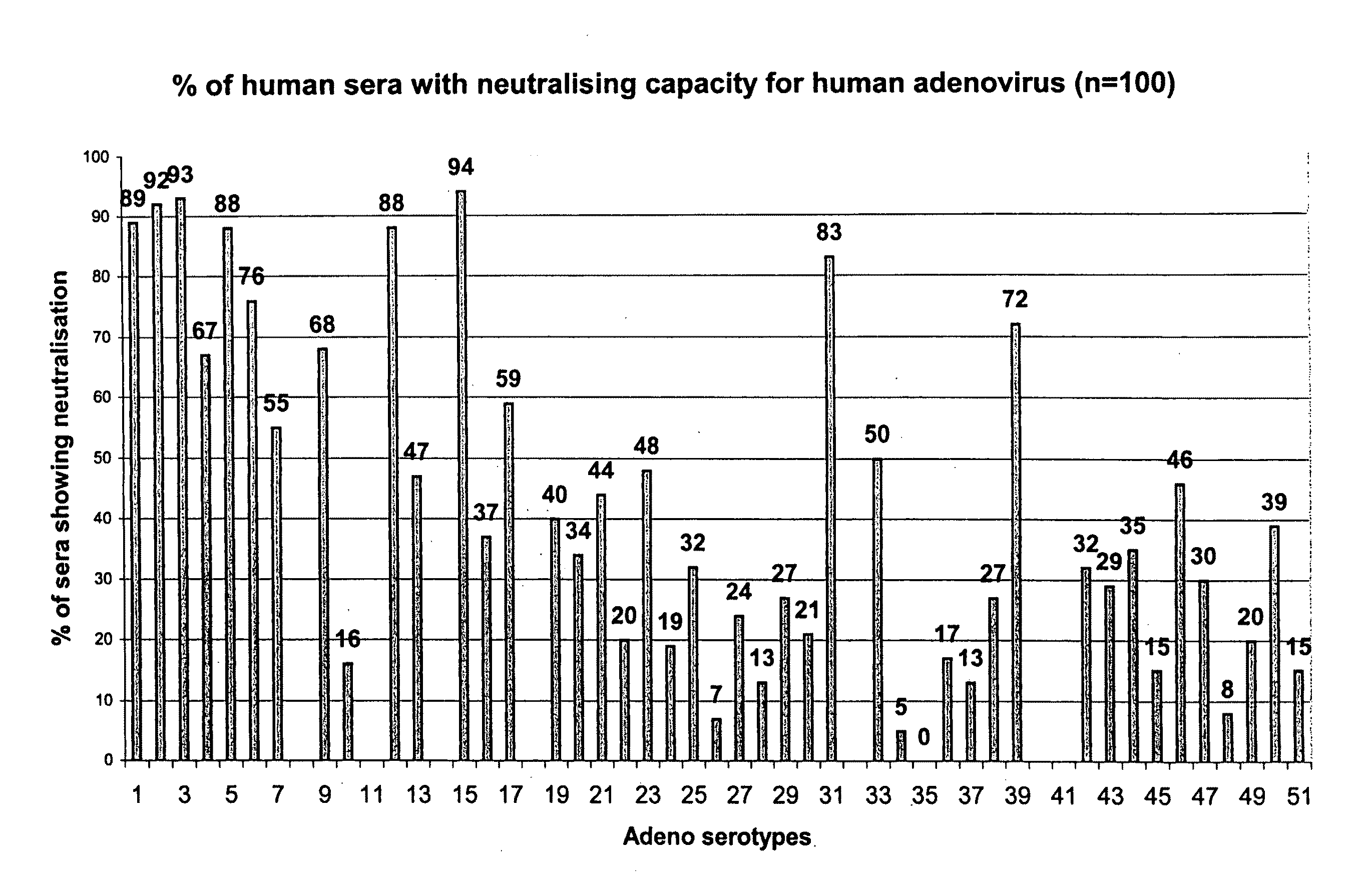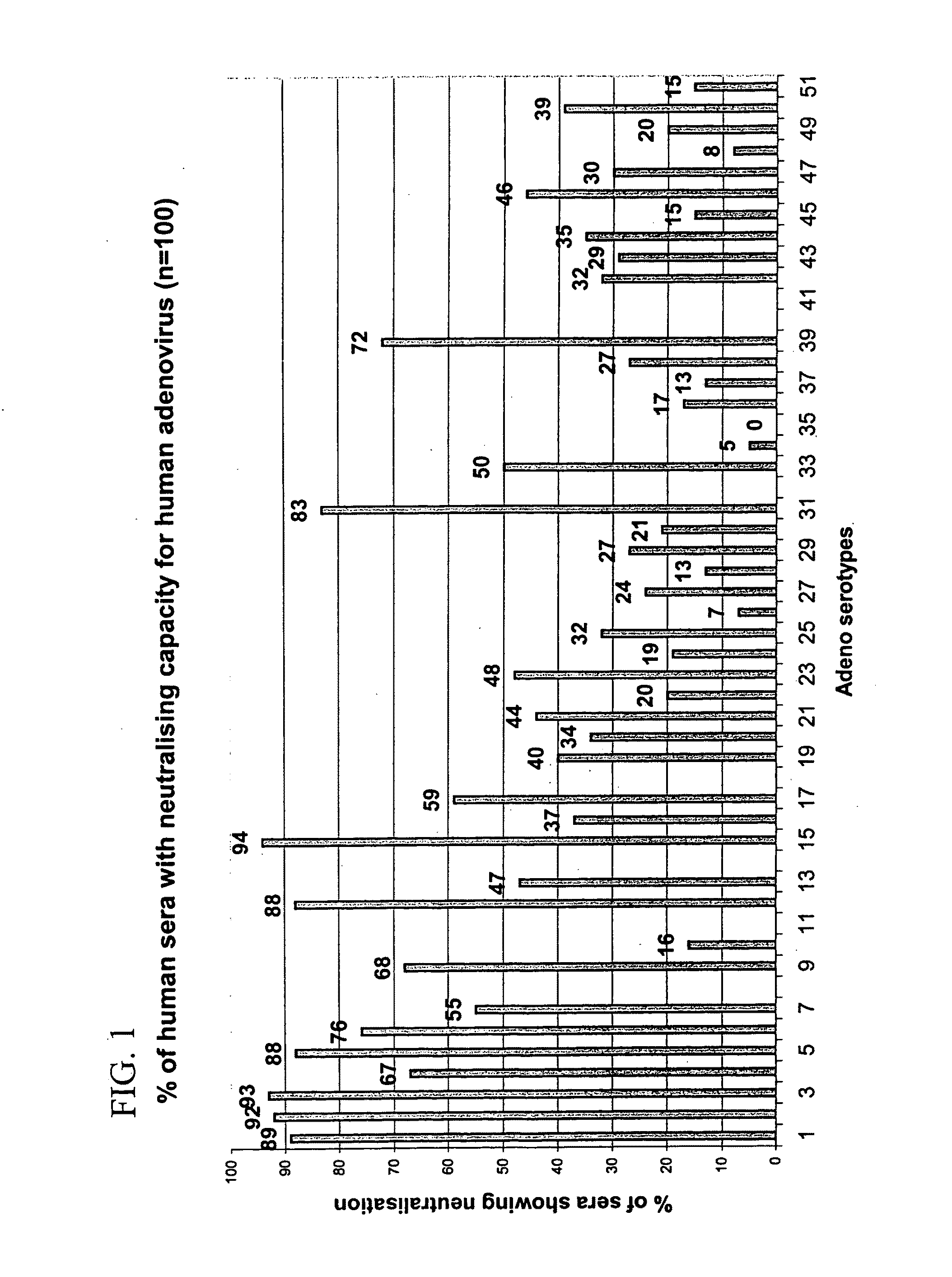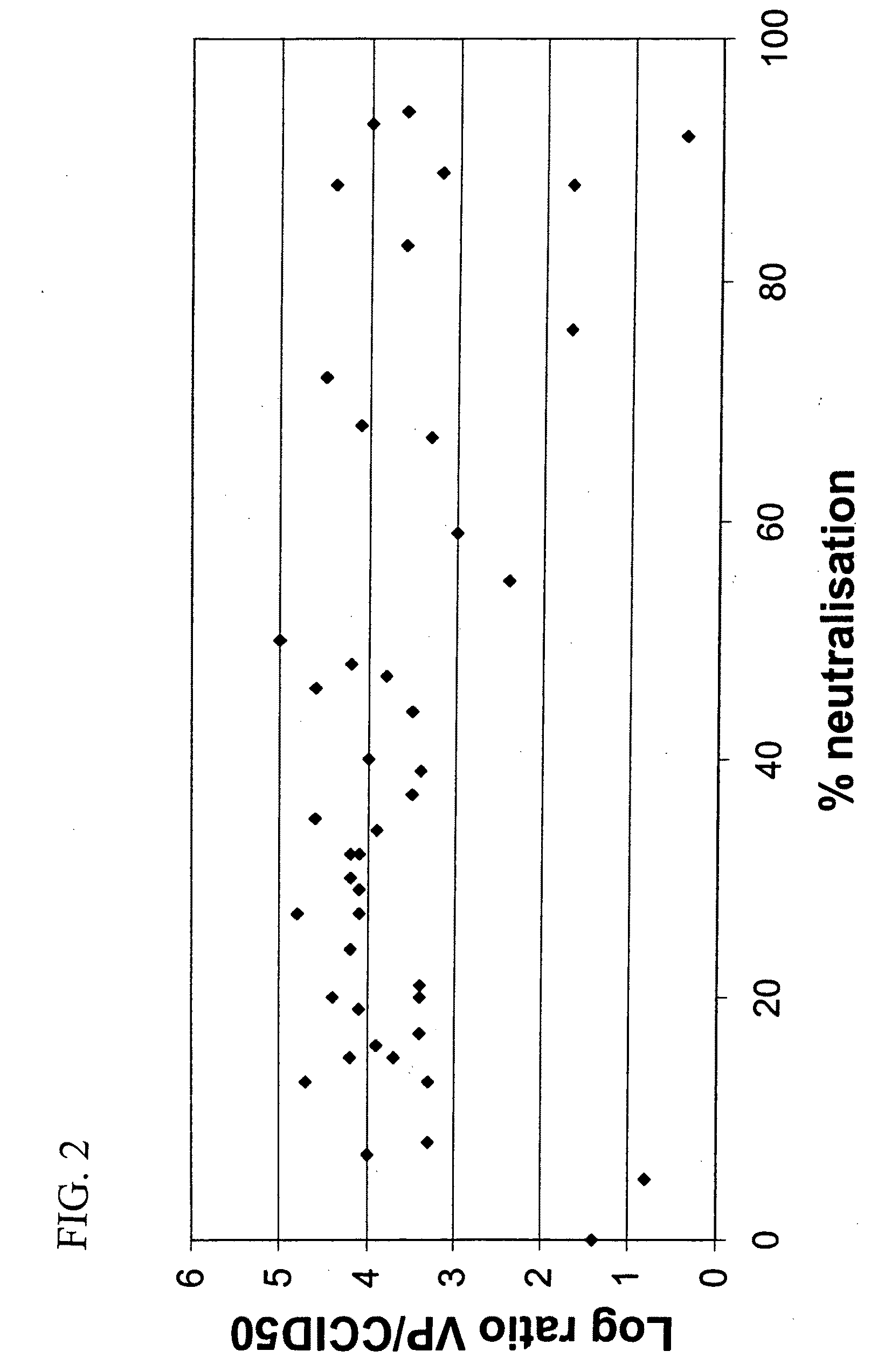Serotype of adenovirus and uses thereof
a technology of serotype and adenovirus, applied in the field of serotype of adenovirus and gene therapy, can solve the problems of serious hampered use of adenoviruses or cross-immunizing adenoviruses to prepare gene delivery vehicles, exist widespread pre-existing immunity among the population, and drawbacks associated with the therapeutic use of adenoviral vectors in humans, so as to reduce the immune response, avoid such a draw
- Summary
- Abstract
- Description
- Claims
- Application Information
AI Technical Summary
Benefits of technology
Problems solved by technology
Method used
Image
Examples
example 1
A High-Throughput Assay for the Detection of Neutralizing Activity in Human Serum
[0091]To enable screening of a large amount of human sera for the presence of neutralizing antibodies against all adenovirus serotypes, an automated 96-well assay was developed.
[0092]Human sera: A panel of 100 individuals was selected. Volunteers (50% male, 50% female) were healthy individuals between ages 20 and 60 years old with no restriction for race. All volunteers signed an informed consent form. People professionally involved in adenovirus research were excluded.
[0093]Approximately 60 ml blood was drawn in dry tubes. Within two hours after sampling, the blood was centrifuged at 2500 rpm for ten minutes. Approximately 30 ml serum was transferred to polypropylene tubes and stored frozen at −20° C. until further use.
[0094]Serum was thawed and heat-inactivated at 56° C. for ten minutes and then aliquoted to prevent repeated cycles of freeze / thawing. Part was used to make five steps of two-fold diluti...
example 2
Generation of Ad5 Plasmid Vectors for the Production of Recombinant Viruses and Easy Manipulation of Adenoviral Genes
[0106]pBr / Ad.Bam-rITR (ECACC Deposit P97082122)
[0107]In order to facilitate blunt-end cloning of the ITR sequences, wild-type human adenovirus type 5 (Ad5) DNA was treated with Klenow enzyme in the presence of excess dNTPs. After inactivation of the Klenow enzyme and purification by phenol / chloroform extraction followed by ethanol precipitation, the DNA was digested with BamHI. This DNA preparation was used without further purification in a ligation reaction with pBr322-derived vector DNA prepared as follows: pBr322 DNA was digested with EcoRV and BamHI, dephosphorylated by treatment with TSAP enzyme (Life Technologies) and purified on LMP agarose gel (SeaPlaque GTG). After transformation into competent E. coli DH5α (Life Techn.) and analysis of ampicillin-resistant colonies, one clone was selected that showed a digestion pattern as expected for an insert extending fr...
example 3
Generation of Chimeric-Recombinant Adenoviruses
Generation of Hexon Chimeric Ad5-Based Adenoviruses
[0138]Neutralizing antibodies in human serum are mainly directed to the hexon protein and, to a lesser extent, to the penton protein. Hexon proteins from different serotypes show highly variable regions present in loops that are predicted to be exposed at the outside of the virus (Athappilly et al., 1994, J. Mol. Biol. 242, 430-455). Most type-specific epitopes have been mapped to these highly variable regions (Toogood et al., 1989, J. Gen Virol. 70, 3203-3214). Thus, replacement of (part of) the hexon sequences with corresponding sequences from a different serotype is an effective strategy to circumvent (pre-existing) neutralizing antibodies to Ad5. Hexon-coding sequences of Ad5 are located between nucleotides 18841 and 21697.
[0139]To facilitate easy exchange of hexon-coding sequences from alternative adenovirus serotypes into the Ad5 backbone, a shuttle vector was generated first. Thi...
PUM
| Property | Measurement | Unit |
|---|---|---|
| non-permissive temperature | aaaaa | aaaaa |
| non-permissive temperature | aaaaa | aaaaa |
| pH | aaaaa | aaaaa |
Abstract
Description
Claims
Application Information
 Login to View More
Login to View More - R&D
- Intellectual Property
- Life Sciences
- Materials
- Tech Scout
- Unparalleled Data Quality
- Higher Quality Content
- 60% Fewer Hallucinations
Browse by: Latest US Patents, China's latest patents, Technical Efficacy Thesaurus, Application Domain, Technology Topic, Popular Technical Reports.
© 2025 PatSnap. All rights reserved.Legal|Privacy policy|Modern Slavery Act Transparency Statement|Sitemap|About US| Contact US: help@patsnap.com



